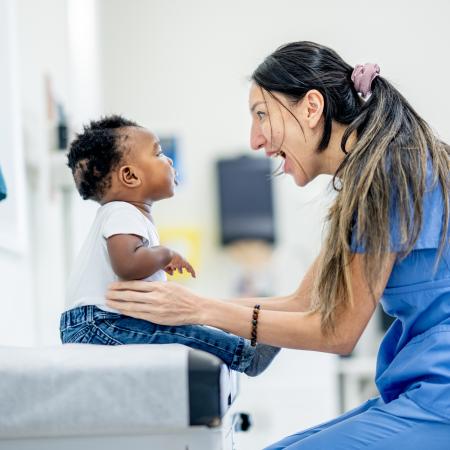Pneumococcal disease can be serious for children . Fortunately, there are vaccines available that have been proven safe and effective, dramatically reducing rates of pneumococcal disease in children.
The CDC recommends that all children get vaccinated for pneumococcal disease. Today’s vaccines defend against many strains of pneumococcal bacteria, but they don’t protect against all. That’s why we’re working to develop a vaccine that aims to expand protection against more bacterial strains than our current pneumococcal vaccines.
Participating in these studies
Joining a clinical trial is an important and personal decision. Taking part could potentially help improve vaccine protection not only for your child, but also other children in the future. We thank you for considering participation as an option that may be right for your family.
These studies are enrolling children of different age groups. The age and vaccination history requirements vary between studies. Click ‘Learn more’ to see if any of these studies may be a good fit for your child.
Condition
Pneumococcal disease
Age
6 weeks to 15 months old
Vaccination status
Both vaccinated and unvaccinated children (depending on their age)
This information is a summary of the eligibility criteria across the studies in this program. Each study will have its own unique requirements for who may participate (eligibility criteria). To learn more about the requirements for a study that is actively recruiting, visit the study's webpage below. Only the research study staff can determine if your child qualifies to enroll in the study.
The PG4 Pneumococcal Vaccine Studies for Children
Your family could potentially make a difference


Your family could potentially make a difference
Participation by children of all backgrounds is critical to developing vaccines that protect against infectious diseases. The greater the diversity among families involved in clinical research, the more we can learn about potential vaccines and how they work in children, including those most at-risk because of their age, race, ethnicity, or where they live. Each new vaccine breakthrough helps us reach more families and communities to prevent and reduce the spread of disease.



